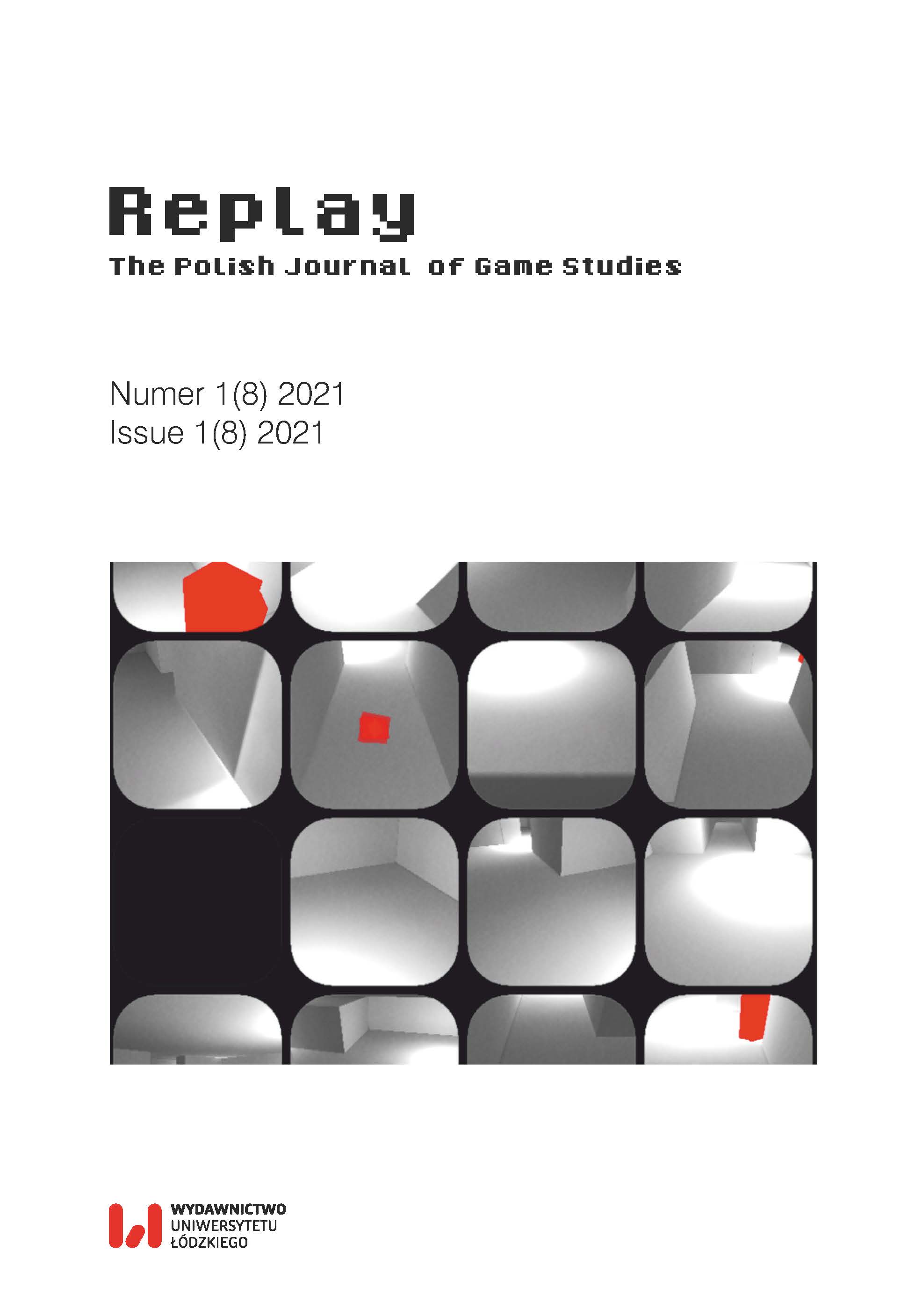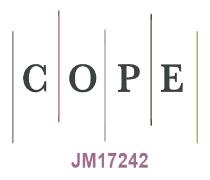Feeling the narrative control(ler): Casual art games as trauma therapy
DOI:
https://doi.org/10.18778/2391-8551.08.07Keywords:
aesthetics, videogames, trauma therapy, casual games, art games, Spiritfarer, MutazioneAbstract
Through a combination of aesthetics and game mechanics, casual art games offer unique engagements with trauma, allowing players to practice grief or empathise with the traumatic experiences of others. Both “Spiritfarer” (Thunder Lotus Games 2020) and „Mutazione” (Die Gute Fabrik 2019) utilise similar aesthetics (2D art, pastel colours and calming music) alongside agency-driven gameplay mechanics (choosing when to let spirits go or how to react to a character’s trauma) that create a safe space. This is possible because neither game is competitive, nor does it allow the player to lose. Instead, agency is given to the player through narrative choice and exploration of the beautiful storyworld. We argue that games like “Spiritfarer” and “Mutazione” can be used as models for the further development of casual art games that can be used as art therapy through their emotional connections embedded in both the aesthetics and gameplay.
References
Adams, E.W. (2014). Will Computer Games Ever Be a Legitimate Art Form? In A.Clarke, G. Mitchell (eds.), Videogames and Art (pp. 419–429). Bristol–Chicago: Intellect Books.
Google Scholar
Anable, A. (2013). Casual Games, Time Management, and the Work of Affect. Ada: A Journal of Gender, New Media, and Technology, 2.
Google Scholar
Bavelier, D., & Green, C.S. (2016). The Brain-Boosting Power of Video Games. Scientific American, 315(1), 26–31.
Google Scholar
DOI: https://doi.org/10.1038/scientificamerican0716-26
Clover, C.J. (1987). Her Body, Himself: Gender in the Slasher Film. Representations, 20, 187–228.
Google Scholar
DOI: https://doi.org/10.2307/2928507
Díaz, C.M.C., & Tungtjitcharoen, W. (2015). Art Video Games: Ritual Communication of Feelings in the Digital Era. Games and Culture, 10(1), 3–34.
Google Scholar
DOI: https://doi.org/10.1177/1555412014557543
Escapist (July 19, 2021). The Making of Spiritfarer | Escapist Documentary. Youtube https://www.youtube.com/watch?v=qxx8sEGjntI
Google Scholar
Etter, D., Kamen, C., Etter, K., & Gore, F.C. (2017). Modern Warfare: Video Game Playing and Posttraumatic Symptoms in Veterans. Journal of Traumatic Stress, 30(2), 182–185.
Google Scholar
DOI: https://doi.org/10.1002/jts.22172
Groensteen, T. (2007). The System of Comics (B. Beaty, N. Nguyen, trans.). University of Mississippi Press.
Google Scholar
Kniffin, T.C., Carlson, C.R., Ellzey, Al., Eisenlohr-Moul, T., Beck, K.B., McDonald, R., & Jouriles, E.N. (2014). Using Virtual Reality to Explore Self-Regulation in High Risk Settings. Trauma, Violence, & Abuse, 15(4), 310–321.
Google Scholar
DOI: https://doi.org/10.1177/1524838014521501
Kramer, J., Gerity, L.A. (2000). Art as Therapy: Collected Papers. Art Therapies Series. Jessica Kingsley.
Google Scholar
Montford, N. (2006). Interactive Fiction. Amsterdam: Elsevier.
Google Scholar
DOI: https://doi.org/10.1016/B0-08-044854-2/05019-7
Moring, S. (2021). Artgames v. Game Art – Diskurse und Strategien der Computerspielkunst zwischen spielbarer Rhetorik und unspielbarer Ästhetik. Informatik Spektrum, 44(1), 30–37.
Google Scholar
DOI: https://doi.org/10.1007/s00287-021-01340-4
Nicklin, H. (November 10, 2020). Multiple Middles & Mutazione. YouTube https://www.youtube.com/watch?v=OUlwwBNESpU
Google Scholar
Porges, S.W. (2017). The Pocket Guide to the Polyvagal Theory. W.W. Norton & Co.
Google Scholar
Rauscher, A., Stein, D., & Thon, J. (2021). Introduction: Comics and videogames. In A. Rauscher, D. Stein, & J. Thon (eds.), Comics and Videogames: From Hybrid Medialities to Transmedia Expansions (pp. 1–14). London–New York: Routledge.
Google Scholar
DOI: https://doi.org/10.4324/9781003035466-1
Rolling, J.H. (2017). Art as Therapy. Art Education, 70(5), 4–5.
Google Scholar
DOI: https://doi.org/10.1080/00043125.2017.1335521
Shapiro, F. (2012) Getting Past Your Past: Take Control of Your Life with Self-Help Techniques from EMDR Therapy. New York: Harmony/Rodale.
Google Scholar
Smethurst, T. (2015). Playing Dead in Videogames: Trauma in Limbo. Journal of Popular Culture, 48(5), 817–835.
Google Scholar
DOI: https://doi.org/10.1111/jpcu.12330
Van der Kolk, B. (2014). The Body Keeps the Score. Penguin.
Google Scholar
Van Gelderen, M.J., Nijdam, M.J., de Vries, F., Meijer, O.C., & Vermetten, E. (2020). Exposure-Related Cortisol Predicts Outcome of Psychotherapy in Veterans with Treatment Resistent Posttraumatic Stress Disorder. Journal of Psychiatric Research, 130, 387–393.
Google Scholar
DOI: https://doi.org/10.1016/j.jpsychires.2020.08.011
Whaley, B. (2019). Virtual Earthquakes and Real-World Survival in Japan’s Disaster Report Video Game. Journal of Asian Studies, 78(1), 95–114.
Google Scholar
DOI: https://doi.org/10.1017/S0021911818002620
Williams, L. (1991). Film Bodies: Gender, Genre, and Excess. Film Quarterly, 44(4), 2–13.
Google Scholar
DOI: https://doi.org/10.2307/1212758
Die Gute Fabrik (2019). Mutazione [multi-platform]. Akupara Games.
Google Scholar
Thunder Lotus Games (2020). Spiritfarer [multi-platform]. Thunder Lotus Games.
Google Scholar
Downloads
Published
How to Cite
Issue
Section
License

This work is licensed under a Creative Commons Attribution-NonCommercial-NoDerivatives 4.0 International License.










